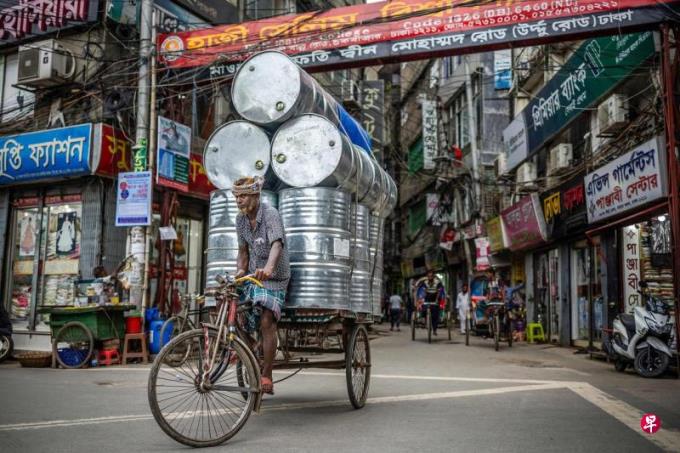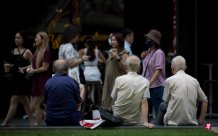
The summer of 2024 is an disturbing and turbulent season. Even if it is removed from the Russian and Ukraine battlefield and the Gaza battlefield, it has occurred in Nepal, Thailand and Bangladesia in Asia.They all have the commonality of deteriorating economic situation, intensified social contradictions, and difficulty in steady development.
Taking Bangladesh as an example, its Shenzhang disease, political symptoms are the sequelae of colonial rule, the gradual freezing disease of the gate valve, the infectious diseases of the region, the sepsis caused by the traumaIt is called "Bangladesh Syndrome".The daily representation of this symptom is the lag of social development and the locking of the industrial iteration. The ultimate manifestation is the "color revolution" staged in Bangladesh -regime change (Chinese researcher Shi Pan Qiyu).
It is necessary to further study the deep reasons behind the Bangladesh Incident, and then understand the political instability and evolution trend of commonly existed in developing countries, and understand the political situation of Bangladesh and even the entire South Asian region in the future.
It is worth noting that this symptom is not unique to Bangladesh, but is widely popular in South Asia, Southeast Asia and Africa, and can even be said to be a common problem in most former colonial countries.It is only because it is particularly typical in Bangladesh, so it is called "Bangladesh syndrome" and will dominate the political trend of these countries in a long historical period.It is particularly vigilant that the "Bangladesh syndrome" is increasingly obviously repeatedly occurred in China and along the Belt and Road, which is particularly worthy of attention.
China has interpreted the tradition of interpretation of the rise and fall and the success of the success or failure since ancient times. One twenty -four history is the history of the country's rise and fall and the history of success or failure. Numerous people have summarized various laws from it.Why is the country who is reading recently?In the eyes of the author and the master of economics, what is the key to determining the success or failure of the country?He believes the difference between the national inclusive system and the drawing system.
He believes that the reason why countries such as Britain and the United States become rich are because the people have overturned the elite nobility of power control and created a society with a wider distribution of political rights.In such a society, the government needs to respond to the people and be responsible to the people, and the general public can use economic opportunities.The reason why Britain is richer than Egypt is because Britain (precisely speaking, England) has a glorious revolution in 1688, which has contributed to political transformation and an accompanying economic transformation.The people successfully strive for more political rights, and use these rights to expand their economic opportunities.As a result, a completely different political and economic evolution trajectory reached a climax in the industrial revolution.
The real economic growth and wealth are considered to be associated with an inclusive economy and political system. The drawing system that continues from colonial, feudal or tribal society usually leads to laugch and poverty.But this does not mean that under the circumstances, it is impossible to create economic growth at all, nor does it mean that all the systematic systems are the same.The Soviet Union, South Korea (the Hanjiang Miracle period), and Bangladesh (the 15 -year economic growth period of Harcena) were very different.
However, even if the learning system can create some growth, it is often impossible to create continuous and stable economic growth, and it must not be the kind of growth that comes with tolerance and creativity.When the political and economic systems are biased towards the cause, it will not produce incentives that can bring creative destruction and technological changes.The government may use administrative guidance and instructions to allocate resources and personnel to create rapid economic growth, but this process is essentially limited.When the limit is reached, economic growth may stop, just like the Soviet Union in the 1970s, South Korea in 1997, and Bangladesh today.
During the Cold War, even when the Soviet Union reached a rapid economic growth, scientific and technological changes had rarely occurred at all levels of the economy.With a large amount of resources in the field of military and military industry, the Soviet Union was developing some advanced military technology, and even for a period of time leading the United States in the space and nuclear weapons competitions.However, the growth of this lack of market transformation, creative destruction, and no extensive free enterprise participation eventually cannot continue for a long time.
Different from general cognition, the ruling group with power may usually oppose economic development and the inevitable social progress.The process of economic development is not only the process of more factories and machines, but also more educated workers. It is also the process of educating the popularization of people's wisdom, diversification of society, and rapid transformation and continuous turbulence.
Why may there be a social elite with power, maybe they may not be willing to build an economic system that truly promote economic growth?The logic is easy to apply to the choice of political system.In traditional regimes, rulers and bureaucratic elites can use power to establish their preference for economic systems.They will not intentionally change the existing system, because this will only dilute their existing political power.The author also sees obvious sources of conflict here. The victims of the sexual economic system cannot expect the centralized rulers to voluntarily change the political system and re -assign political power.The only way to change such a political system is to force the rulers and traditional elites to establish a more diversified tolerance system, which is also what happened in Bangladesh.
In addition, under the political system, measures to support economic growth are essentially fragile. They may collapse or be easily damaged by the internal tension of the system itself.Because drawing sexual and economic growth generally generate contradictions, the system has led to wealth and power in the hands of a few elites.If another group -military or populist -can overwhelm or win these "old money" and take over the government, they can become new people who enjoy wealth and power.As the collapse of the Roman Empire and Mayan City shows that the government's control of power control is carried out all the time under the table, and it will be regularly intensified and leads to the destruction of the regime.It may be transformed into fierce internal consumption, and sometimes even cause the government to completely collapse, as it happened today in Daka.One of the influences of this situation is that even if a society under the learning system is drawn, the government's centralized and experience reached several degrees of government power and experience in the early days, even if a generation of "no development" economic growth is eventually unable to last.In fact, in order to control the internal consumption of this internal volume and drawing system, it often leads to the change of regime, civil war, and large -scale rule of law.This is the normal state of many southern African countries and Latin America and South Asian countries.
The interactive relationship between the political system and the economic system emphasized by the country's failure of the country is particularly important in the era of globalization.Economic changes in the process of globalization are often accompanied by the needs of political change, and the stability and effective operation of the political system is the prerequisite for the sustainable economic development.Therefore, whether in the era of globalization or wind and cloud weird, we need to be more vigilant and avoid the emergence of drawing systems, strive to build an open diversified tolerance system, and realize social fairness and justice.
The author is a researcher at the Fudan Western International Financial Research Institute in Chengdu




